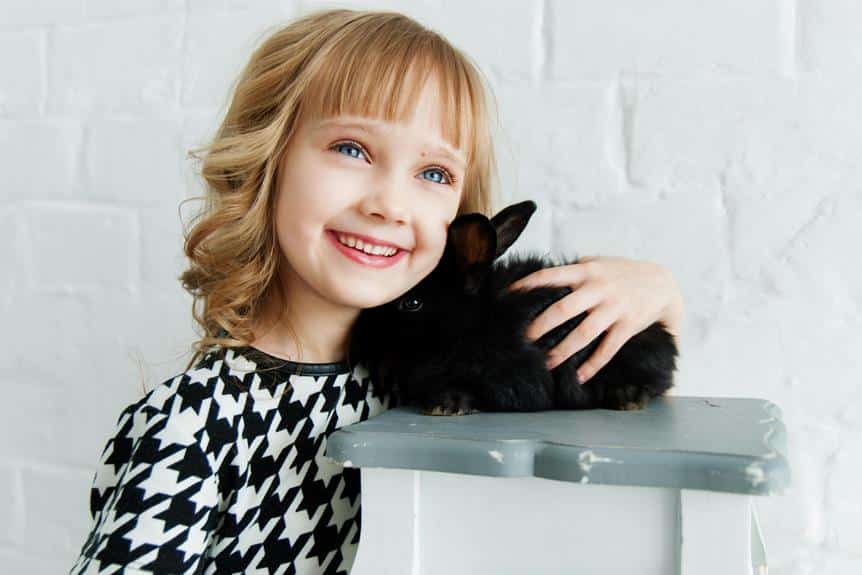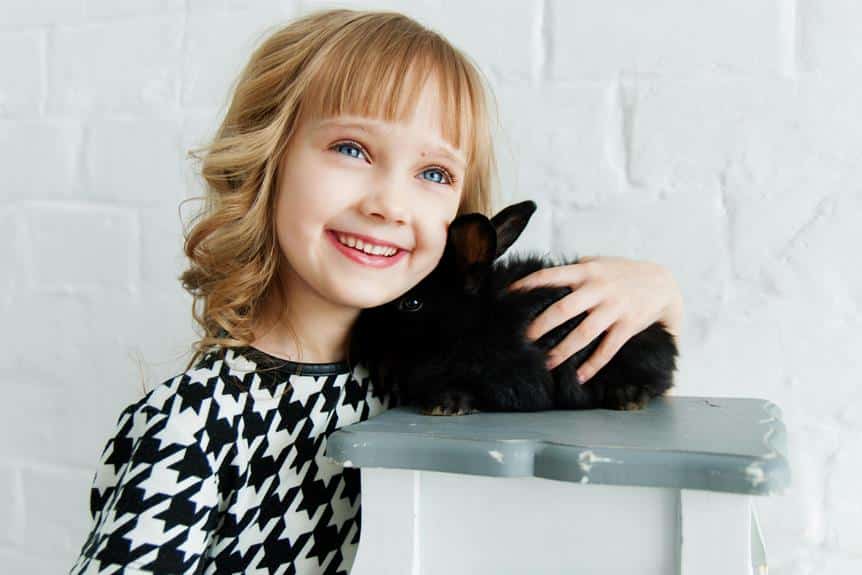Table of Contents
When it comes to your beloved rabbit, their appetite is like a compass, guiding you through their overall health and well-being. But what happens when that compass starts to falter?
What do you do if your rabbit stops eating? It’s a worrisome sign, a red flag that something might be off.
But fear not, for in this discussion, we will explore the possible causes of this concerning behavior and provide you with practical steps to take in order to help your furry friend get back on track.
So, let’s dig deep into the world of rabbit care and uncover the secrets to ensuring their health and happiness.
Key Takeaways
- Observe the rabbit’s behavior and evaluate its appetite for signs of lethargy or discomfort.
- Take prompt action if the lack of appetite persists for more than 24 hours and consult a veterinarian for guidance.
- Check for physical symptoms such as overgrown teeth or a bloated abdomen and seek veterinary assistance for proper diagnosis and treatment.
- Contact a veterinarian for expert diagnosis and treatment to address the underlying cause and prevent complications.
Assess the Situation
If your rabbit has suddenly stopped eating, it’s crucial to assess the situation immediately to determine the underlying cause and take appropriate action. Evaluating your rabbit’s appetite and observing their behavior are essential steps in understanding what might be happening. Rabbits are known for their voracious appetites, so any sudden decrease in food intake is a cause for concern.
First, carefully observe your rabbit’s behavior. Are they still active and playful or do they seem lethargic and withdrawn? Changes in behavior can provide important clues about their overall health. Additionally, pay attention to any signs of discomfort such as teeth grinding, hunched posture, or reluctance to move. These signs may indicate pain or illness.
Next, evaluate your rabbit’s appetite. Are they refusing all food or just specific types? Losing interest in their favorite treats can be a red flag for potential health issues. It’s also important to note any changes in their drinking habits as dehydration can quickly become a serious problem for rabbits.
As you assess the situation, consider any recent changes in their environment or routine. Has there been a dietary change, a move to a new location, or a stressful event? These factors can contribute to a loss of appetite.
If your rabbit’s lack of appetite persists for more than 24 hours, it’s crucial to consult a veterinarian. They’ll be able to provide a comprehensive evaluation and determine the best course of action to ensure your rabbit’s well-being. Remember, acting promptly and seeking professional help are key to addressing the underlying cause and helping your rabbit regain their appetite.
Check for Physical Symptoms
To check for physical symptoms in your rabbit, carefully examine their body for any visible signs of illness or discomfort. One of the common signs of dental issues in rabbits is overgrown or misaligned teeth. Gently lift your rabbit’s lips to inspect their teeth. Look for any uneven wear, broken or missing teeth, or excessive drooling. Dental problems can make it difficult for rabbits to eat, causing a loss of appetite.
Another physical symptom to watch out for is a bloated abdomen. This could indicate gastrointestinal issues, such as gas buildup or a blockage, which can lead to a decreased appetite.
Additionally, check for any changes in your rabbit’s energy levels or posture. If they appear lethargic, hunched over, or are reluctant to move, it may be a sign of pain or discomfort. Other potential causes of appetite loss include respiratory infections, urinary tract issues, or even stress.
If you notice any of these physical symptoms, it’s important to consult a veterinarian for a proper diagnosis and treatment plan. Remember, early detection and intervention are key in ensuring your rabbit’s health and well-being.
Contact a Veterinarian
If your rabbit is experiencing a loss of appetite, it’s crucial to contact a veterinarian as soon as possible. Seeking professional advice is essential in determining the underlying cause of your rabbit’s decreased appetite and providing the appropriate treatment.
Here are four reasons why contacting a veterinarian is necessary:
- Expert diagnosis: A veterinarian has the knowledge and experience to accurately diagnose the reason behind your rabbit’s loss of appetite. They can perform a thorough examination, run necessary tests, and identify any underlying health issues.
- Tailored treatment: Once the cause of your rabbit’s decreased appetite is determined, a veterinarian can provide a tailored treatment plan. This may involve medication, dietary changes, or other forms of intervention to address the specific issue.
- Preventing complications: Loss of appetite in rabbits can lead to serious health complications if left untreated. By contacting a veterinarian promptly, you can prevent further deterioration of your rabbit’s health and ensure timely intervention.
- Monitoring behavior: A veterinarian can guide you on how to monitor your rabbit’s behavior and provide advice on what to look out for. This will help you identify any changes or improvements in your rabbit’s appetite, enabling you to provide accurate updates to the veterinarian.
Offer a Variety of Fresh Foods
When addressing your rabbit’s loss of appetite with a veterinarian, they may recommend offering a variety of fresh foods to encourage your rabbit to eat. Introducing new food options can help entice your rabbit and provide the necessary nutrients for their well-being.
Rabbits are herbivores and require a diet rich in fiber, so it’s important to offer a mix of hay, fresh vegetables, and herbs. Hay should make up the majority of their diet, as it aids in digestion and keeps their teeth healthy. Leafy greens such as kale, lettuce, and spinach can be given in moderation. You can also try offering herbs like parsley or cilantro, which add variety to their meals.
It’s crucial to monitor your rabbit’s eating habits during this time. Keep track of which foods they prefer and gradually increase the amounts. If your rabbit still refuses to eat, it’s essential to consult with your veterinarian to rule out any underlying medical conditions.
Remember to always provide fresh water and clean food dishes to ensure your rabbit stays hydrated and healthy.
Provide a Comfortable and Stress-Free Environment
Creating a comfortable and stress-free environment for your rabbit is crucial to ensure their well-being and encourage them to eat. Rabbits are sensitive animals that thrive in a calm and secure space. Here are four important steps to help you provide a safe and peaceful environment for your furry friend:
- Creating a safe space: Rabbits need a designated area where they feel secure and can retreat to when they need some downtime. Make sure they have a cozy hideaway, such as a box or a small enclosed space, where they can relax and feel safe. This will help reduce any anxiety or stress they may be experiencing.
- Providing a quiet environment: Rabbits are easily startled by loud noises or sudden movements. Keep their living area in a quiet part of your home, away from excessive foot traffic or loud appliances. This will allow them to feel more at ease and less likely to become stressed or frightened.
- Ensuring proper ventilation and lighting: Adequate airflow and natural lighting are essential for your rabbit’s well-being. Make sure their living area is well-ventilated, with good air circulation. Additionally, provide them with access to natural daylight or a suitable alternative, as this helps regulate their sleep cycles and overall mood.
- Encouraging social interaction with other rabbits: Rabbits are social animals and thrive when they have companionship. If possible, consider introducing your rabbit to another rabbit to provide valuable social interaction. This can greatly reduce their stress levels and promote a healthy appetite.



